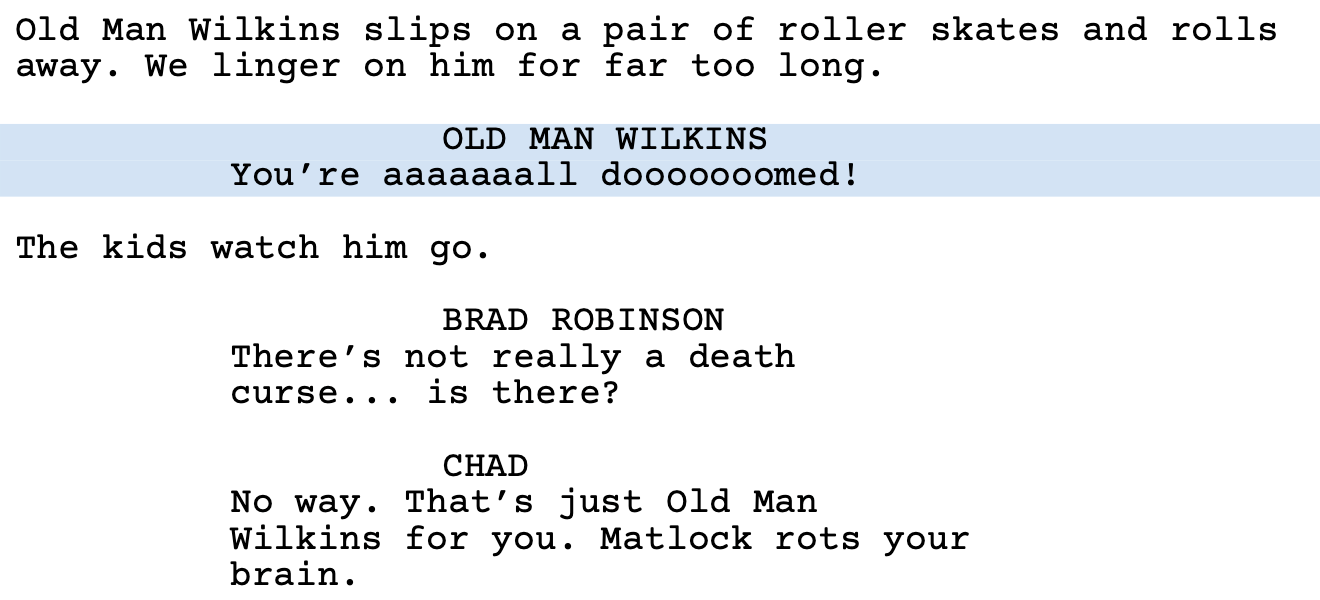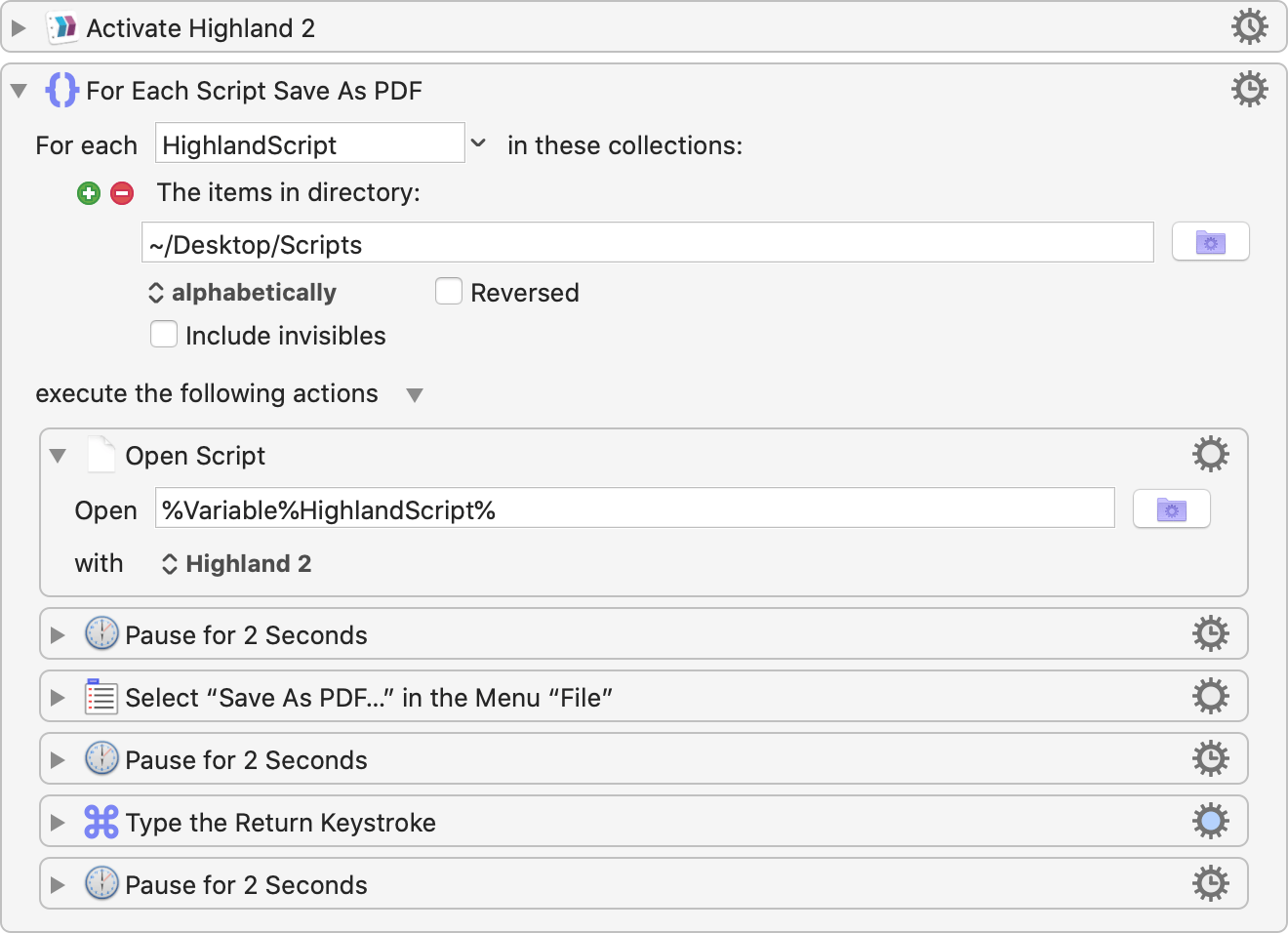

Automate Character Highlighting with Highland
source link: https://matthewminer.com/2020/10/18/automate-character-highlighting-with-highland
Go to the source link to view the article. You can view the picture content, updated content and better typesetting reading experience. If the link is broken, please click the button below to view the snapshot at that time.
Matthew Miner
Automate Character Highlighting with Highland
October 18, 2020Highland, the program I use for screenwriting, has a useful feature to highlight a character’s dialogue.

Recently I cohosted a reading of Return to Black Creek, a comedy slasher I penned with my writing partner Stephen T. Holmes. To help the actors find their lines, we sent each a personalized PDF of the script with their character highlighted.
Saving a custom script by hand for all 15 of our actors would be tedious. Especially with the last-minute tweaks I can’t resist. Highland lacks a built-in way to automate this, but fortunately the .highland file format is easy to work with.
Highland uses the TextBundle format. I was unfamiliar with it before, but it’s used by several popular apps like Bear and Ulysses. Basically it’s a few text files in a ZIP container.1 The one we care about is characterHighlighting.json. It’s a dictionary of character names with their highlight colour in hex format.
{
"OLD MAN WILKINS" : "D1E3F4"
}
To highlight a character programmatically, we need to unzip the file, change characterHighlighting.json, and zip it back up. In Python this looks like this:
import json
import os
import tempfile
from zipfile import ZipFile
file_path = "Return to Black Creek.highland"
character_highlighting = {"OLD MAN WILKINS": "D1E3F4"}
# We write the updated script to a temporary file then replace the original later.
temp_fd, temp_path = tempfile.mkstemp()
os.close(temp_fd)
with ZipFile(file_path, "r") as in_zip, ZipFile(temp_path, "w") as out_zip:
character_highlighting_path = os.path.join(
os.path.dirname(in_zip.namelist()[0]),
"characterHighlighting.json",
)
# Copy items from the original zip file to the temporary one.
# But skip characterHighlighting.json.
for item in in_zip.infolist():
if item.filename == character_highlighting_path:
continue
content = in_zip.read(item.filename)
out_zip.writestr(item, content)
# Now write characterHighlighting.json.
character_highlighting_json = json.dumps(character_highlighting)
out_zip.writestr(character_highlighting_path, character_highlighting_json)
# Overwrite the original file with the temporary one we created.
os.remove(file_path)
os.rename(temp_path, file_path)
To export the result to a PDF I used Keyboard Maestro to click through Highland’s menu items.

You can probably use AppleScript to achieve the same result. I just don’t have patience for AppleScript’s arcane syntax.
If you need to automate character highlighting in your own Highland script, I uploaded a more robust version of the above code to GitHub. To run it, download hlhl and run ./hlhl /path/to/screenplay.highland in the terminal.
usage: hlhl [-h] [--clear-others] [--color COLOR] FILE CHARACTER
Highlights a character in a Highland screenplay.
positional arguments:
FILE Highland file
CHARACTER character to highlight
optional arguments:
-h, --help show this help message and exit
--clear-others remove other highlights
--color COLOR hex color value (default: D1E3F4)
When digging into the .highland file I discovered that BBEdit can edit text files inside ZIP archives as easily as any other file. It’s a neat trick. ↩
Recommend
About Joyk
Aggregate valuable and interesting links.
Joyk means Joy of geeK